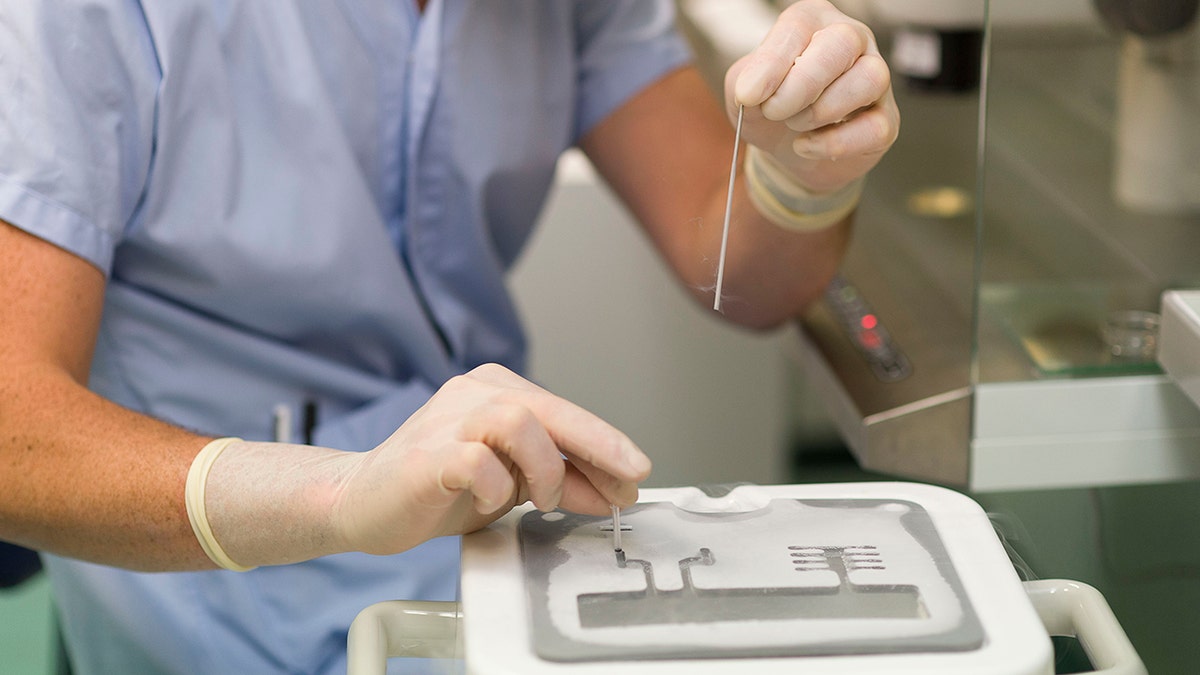Fox News Flash top headlines for February 20
Fox News Flash top headlines are here. Check out what's clicking on Foxnews.com.
The Alabama Supreme Court has ruled that frozen embryos created during fertility treatments can be considered children under state law.
The decision, issued in a pair of wrongful death cases brought by couples who had frozen embryos destroyed in an accident at a fertility clinic, brought a rush of warnings from advocates who said it would have sweeping implications for fertility treatments.
Justices, citing anti-abortion language in the Alabama Constitution, ruled Friday that an 1872 state law allowing parents to sue over the death of a minor child "applies to all unborn children, regardless of their location."
"Unborn children are ‘children’ under the Act, without exception based on developmental stage, physical location, or any other ancillary characteristics," Justice Jay Mitchell wrote in the majority ruling.
TEXAS COUPLE WHO DONATED FROZEN EMBRYOS 20 YEARS AGO MEETS BIOLOGICAL TEEN TRIPLETS
Mitchell said the court had previously ruled that fetuses killed while a woman is pregnant are covered under Alabama’s Wrongful Death of a Minor Act and nothing excludes "extrauterine children from the Act’s coverage."
The plaintiffs in the Alabama case had undergone IVF treatments that led to the creation of several embryos, some of which were implanted and resulted in healthy births. The couples had paid to keep others frozen in a storage facility at the Mobile Infirmary Medical Center. A patient wandered into the area and removed several embryos, dropping them on the floor and "killing them," the ruling said.

The Alabama Supreme Court ruled that frozen embryos are considered children after couples brought a wrongful death suit when their embryos were destroyed in a clinic accident. (BSIP/Universal Images Group/Getty Images)
Chief Justice Tom Parker issued a concurring opinion that quoted the Bible as he discussed the meaning of the phrase "the sanctity of unborn life" in the Alabama Constitution.
"Even before birth, all human beings bear the image of God, and their lives cannot be destroyed without effacing his glory," Parker said.
CLICK HERE TO GET THE FOX NEWS APP
Justice Greg Cook, who filed the only full dissent to the majority opinion, said the 1872 law did not define "minor child" and was being stretched from the original intent to cover frozen embryos.
"Moreover, there are other significant reasons to be concerned about the main opinion’s holding. No court — anywhere in the country — has reached the conclusion the main opinion reaches," he wrote, adding the ruling "almost certainly ends the creation of frozen embryos through in vitro fertilization ("IVF") in Alabama."
Alabama voters in 2018 agreed to add language to the Alabama Constitution that state policy to recognizes the "rights of unborn children."
Supporters at the time said it would "be a declaration of voters’ beliefs and would have no impact unless states gain more control over abortion access. States gained control of abortion access in 2022. Critics at the time said it would have broad ramifications for civil and criminal law beyond abortion access and that it was essentially a "personhood" measure that would establish constitutional rights for fertilized eggs.

